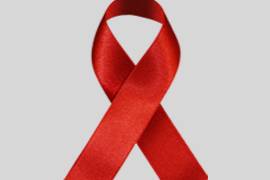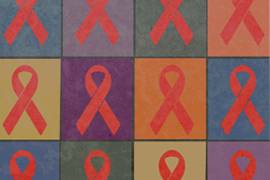By now, you likely are aware that actor Charlie Sheen disclosed on the Today show this morning that he is living with HIV. Regardless of the reasons for this public disclosure at this time, Lambda Legal recognizes that coming out as someone living with HIV is an extremely personal decision and not an easy step for anyone.
We hope that Mr. Sheen’s announcement will advance the conversation about HIV and AIDS in this country. As an organization committed to protecting the civil rights of people living with HIV, here are some things people should keep in mind as this is discussed in the coming days.
Questions? Contact Lambda Legal's Help Desk.
First, HIV is not the disease it was 25 years ago. With access to care and treatment—and the support needed to take advantage of those services—a person living with HIV can lead a healthy, productive life of near-normal length. A person who is diagnosed early and has consistent access to care and treatment has a life expectancy that is only a handful of months shy of a person without HIV.
Second, the chances of transmission from a single sexual contact are much smaller than most people imagine. Even the sexual activity with the highest risk—receptive anal sex—results in transmission less than 2% of the time. And that is without taking into account use of prevention technologies, such as condoms, “treatment as prevention,” or pre-exposure prophylaxis (PrEP).
Third, with successful treatment, the chance of transmission between sexual partners is likely zero. Last year, preliminary results of a study that documented approximately 30,000 sex acts within couples of mixed HIV status, where the HIV-positive partner had a suppressed viral load due to treatment, showed no transmissions of HIV. These preliminary results are in line with an earlier study that at first documented a 96% reduction in the already low per-act risk of transmission, and was recently updated to reflect the fact that not a single transmission could be linked to an HIV-positive partner with a suppressed viral load.
That’s an additional reason why it is so important to learn your status and seek treatment if you are living with HIV. The Affordable Care Act (ACA) has expanded access to health insurance to millions of Americans, reducing the healthcare access problems that plague communities of color, people with low incomes and other marginalized populations. Eliminating the HIV-related disparities that result from unequal access to care is a primary reason that Lambda Legal has been doing work to ensure the continuing viability of the ACA in every state, and Lambda Legal’s Know Your Rights: HIV hub has information about obtaining access to care if you—or your partner—has tested positive for HIV.
Safer sex is a shared responsibility, and new prevention tools are being developed to make a healthy sex life easier than ever. In 2012, the FDA approved HIV-negative people’s use of an antiretroviral HIV medication (Truvada) as pre-exposure prophylaxis (PrEP), to prevent the acquisition of HIV. Research shows that taking PrEP seven days a week is nearly 100% effective at preventing HIV. PrEP is a game changer, because it provides a prevention method that is entirely within the control of the HIV-negative individual and helps to balance the scales of prevention responsibility. And new and improved prevention technologies are on the way!
Finally, it’s essential to realize that shaming or punishing a person, regardless of whether it is a celebrity or an everyday Joe/Jane, who gets tested and knows they are HIV-positive but does not disclose that private medical information to others—for any number of very legitimate reasons—is not the way to address the HIV/AIDS epidemic in this country. Public health officials agree:
The National HIV/AIDS Strategy asks us to “tackle misperceptions, stigma and discrimination to break down barriers to HIV prevention, testing, and care.” The CDC unequivocally asserts that HIV “stigma hampers prevention,” and according to a report by the U.S. Department of Justice, “the stigma associated with HIV remains extremely high and fear of discrimination causes some Americans to avoid learning their HIV status, disclosing their status, or accessing medical care.” While voluntary disclosure of one’s HIV-positive status (when it is safe to do so) is considered a best practice by public health officials, encouraging both partners to take appropriate measures to prevent HIV transmission is the best way to keep everyone healthy, happy and sexually fulfilled.
To answer general questions about HIV testing, disclosure, privacy, discrimination and more, check out Lambda Legal’s Know Your Rights: HIV. For more specific questions, contact our Help Desk.
Lambda Legal’s Know Your Rights: HIV hub is supported by a generous grant from ViiV Healthcare.





